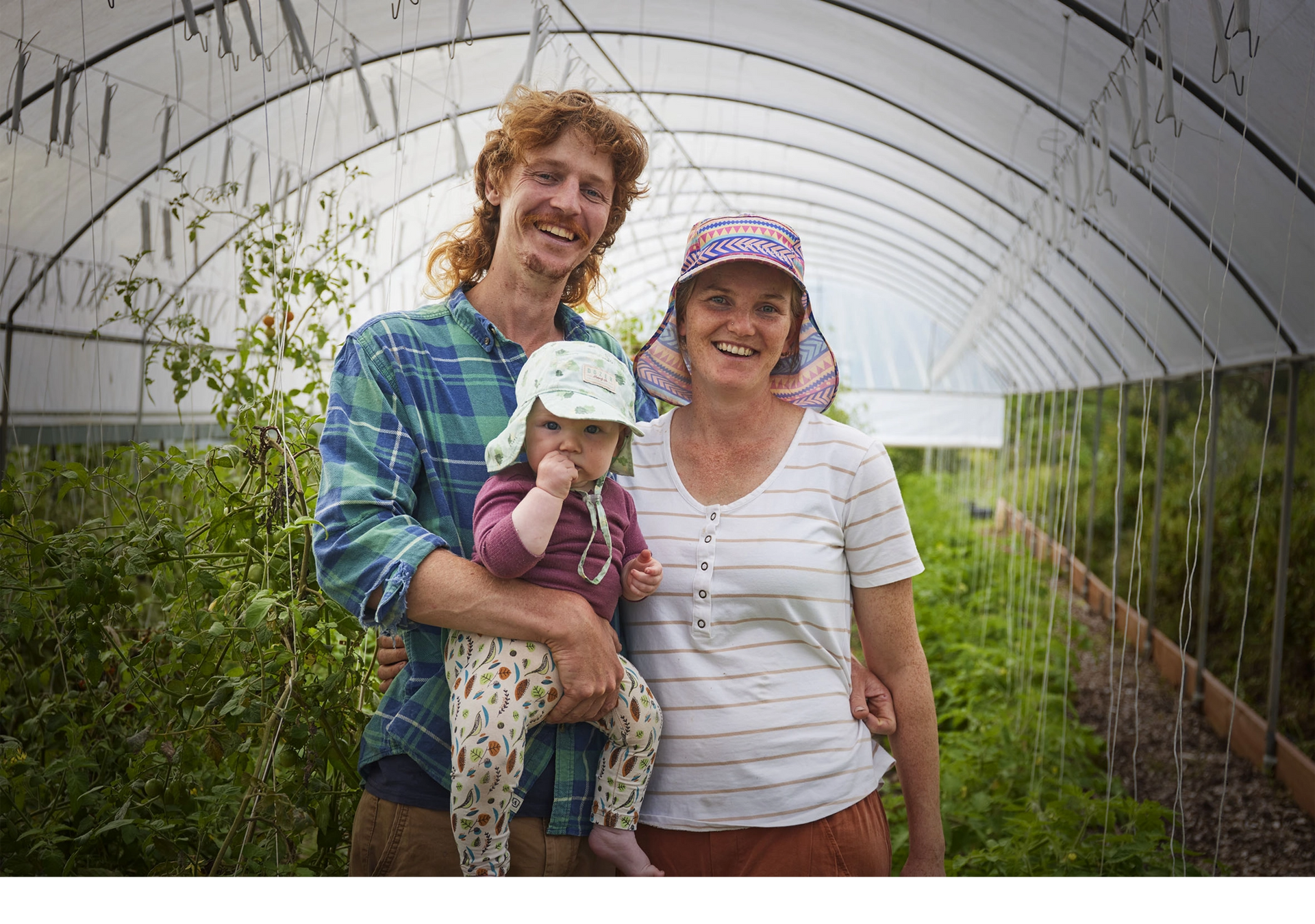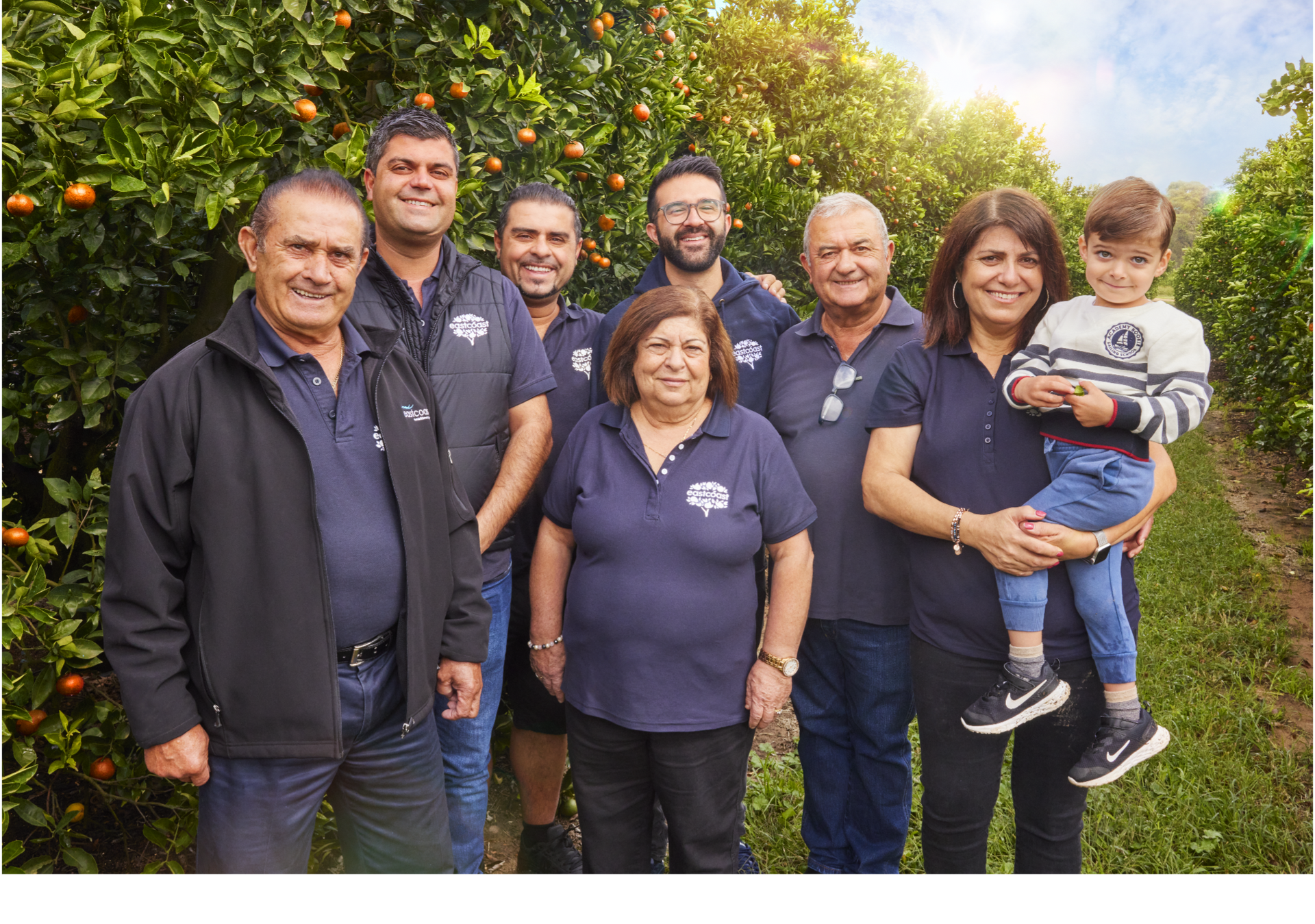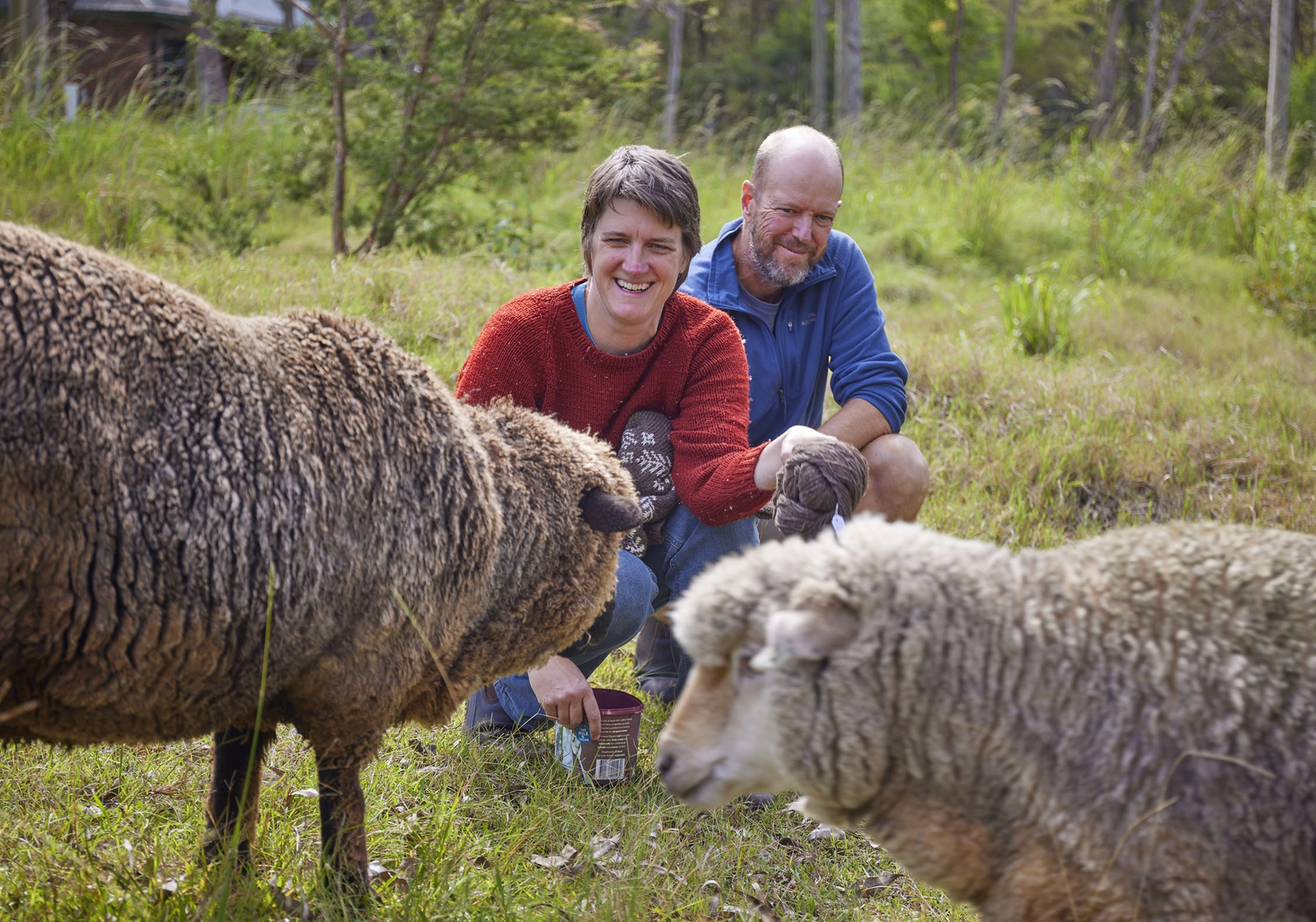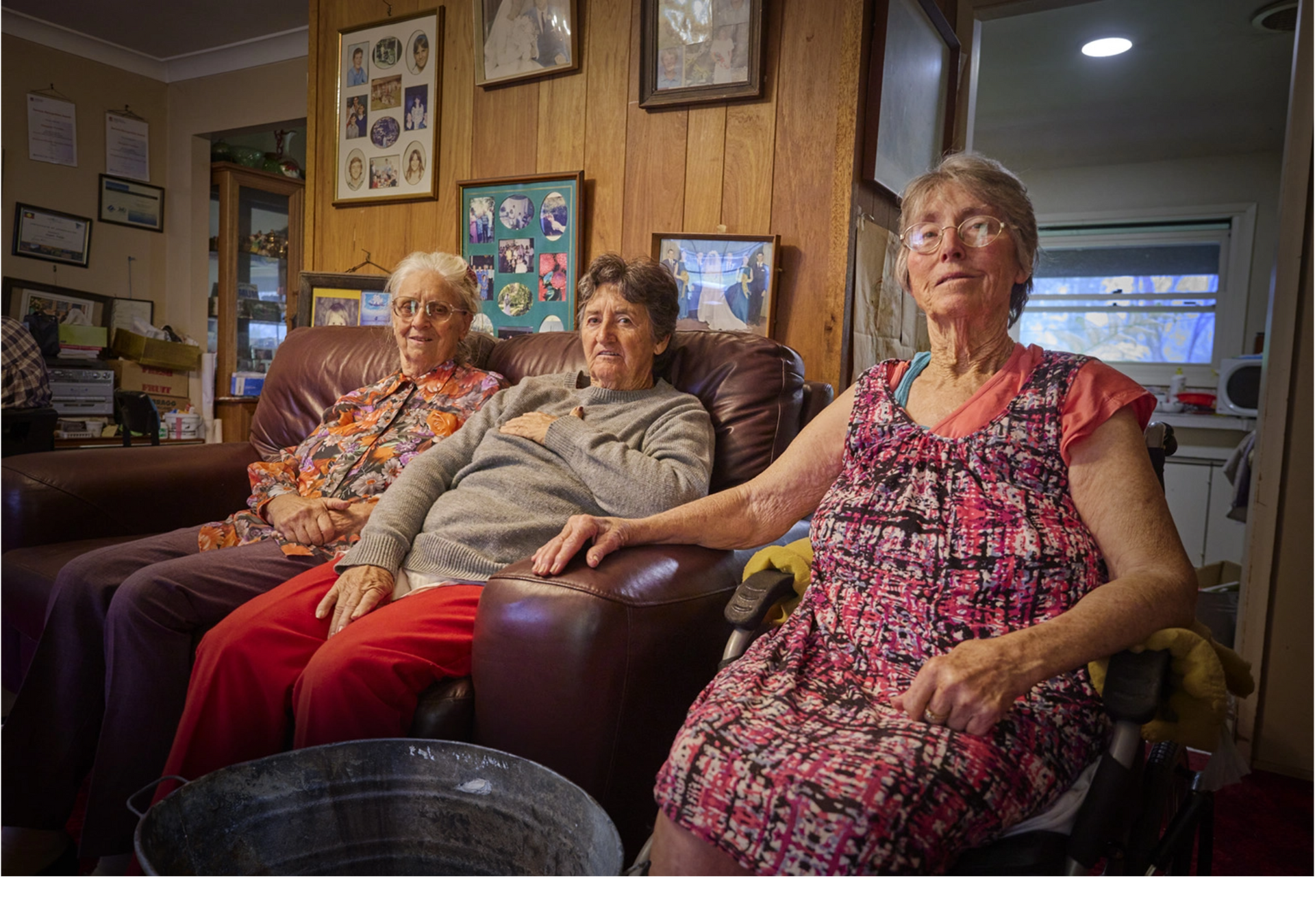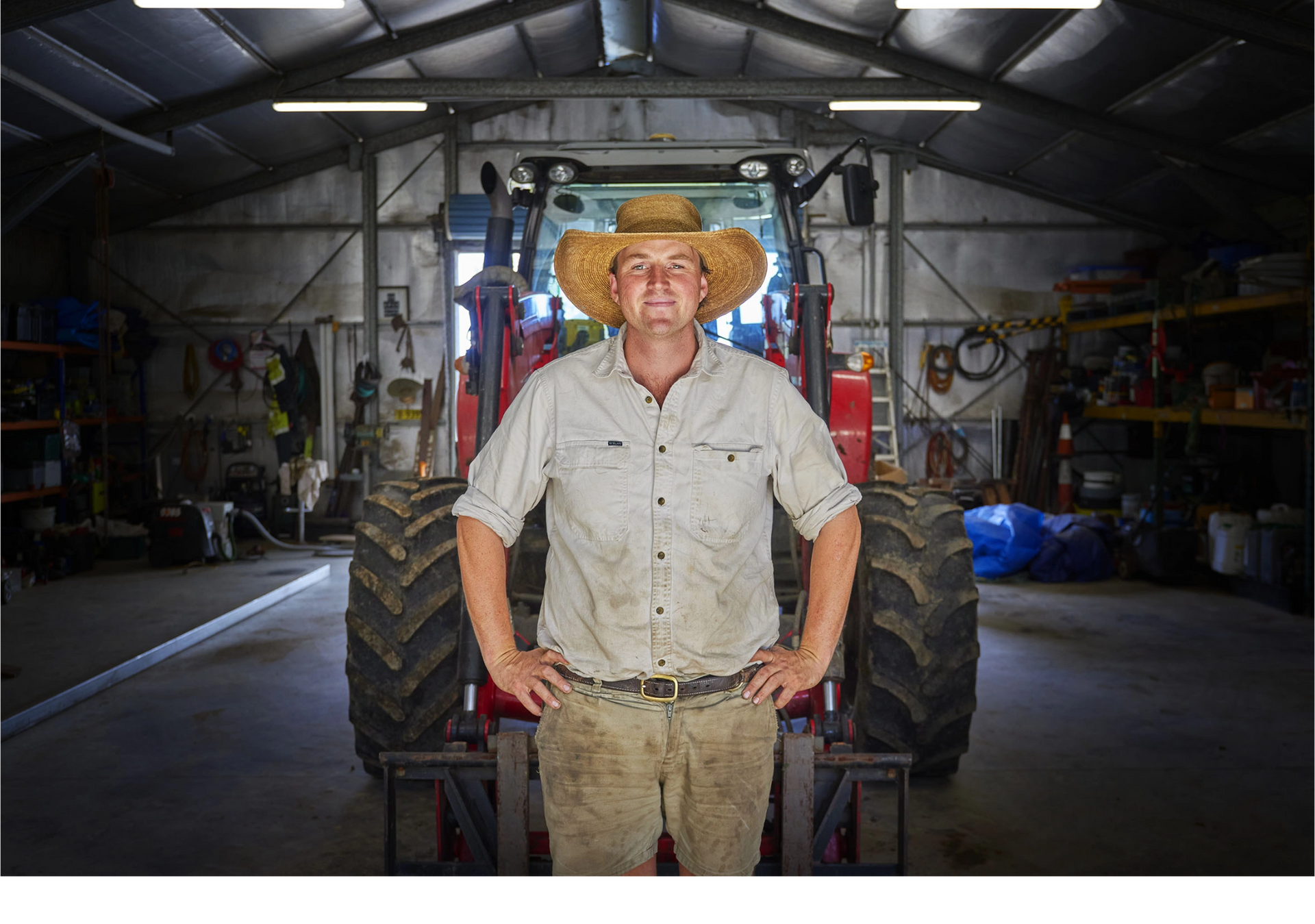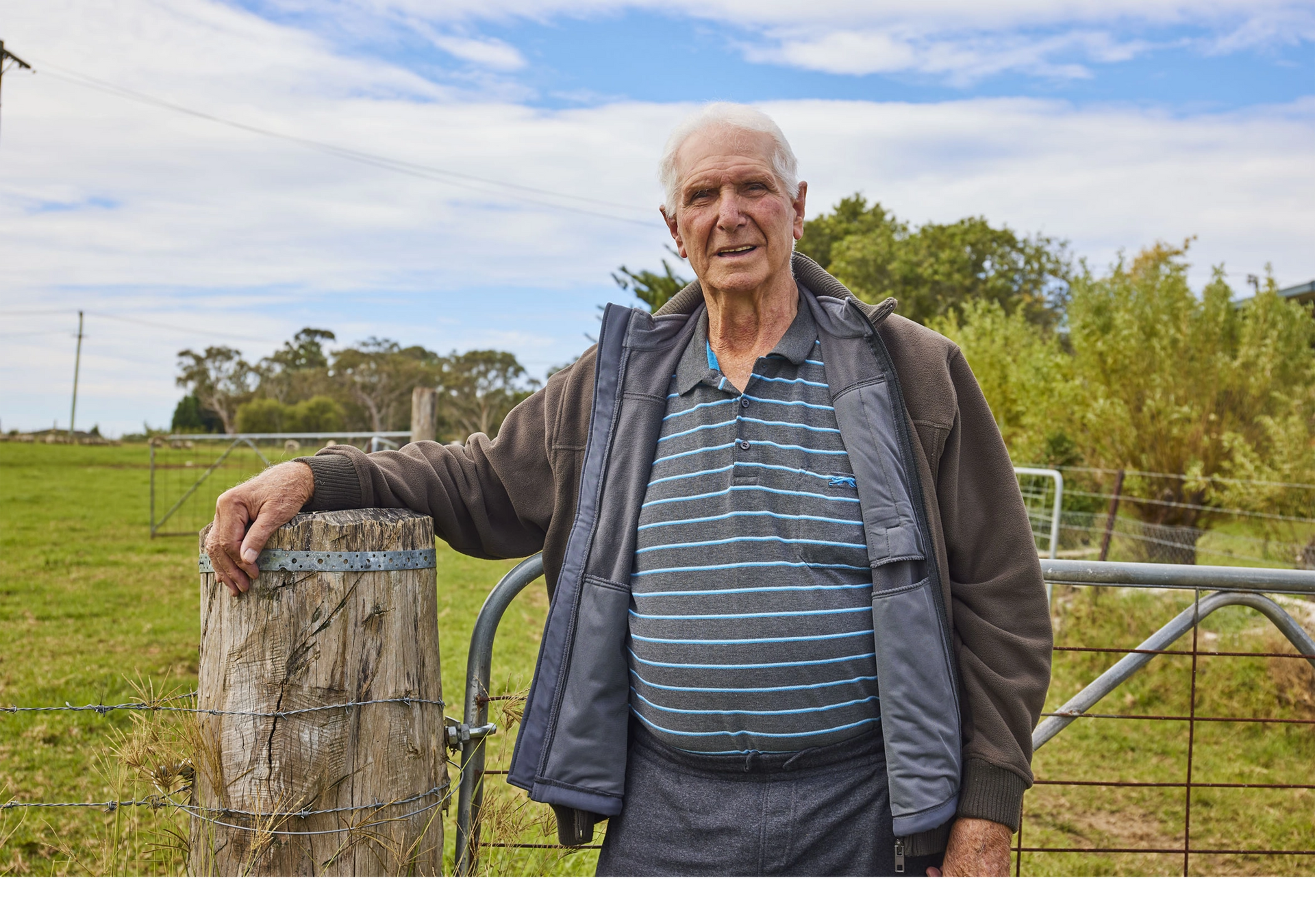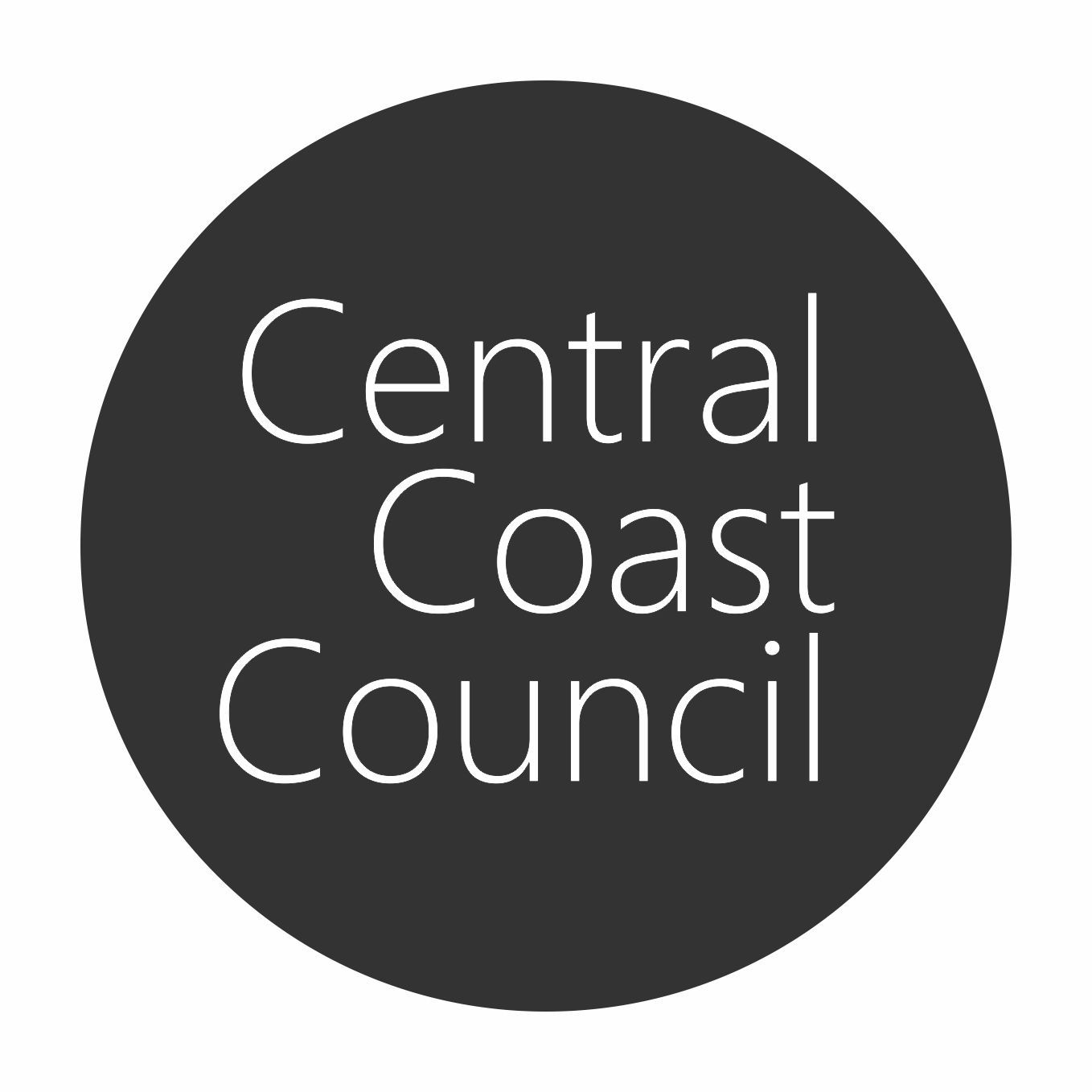Ways of Seeing is a project that aims to give insight into these often subtle and untold stories.
WHEN THESE MOUNTAINS SPEAK
Meliora Farm, Peats Ridge
meliorafarm.com.au
Year: 2023 Photographer: Jeremy Hudson Words: Adrienne Ferreira
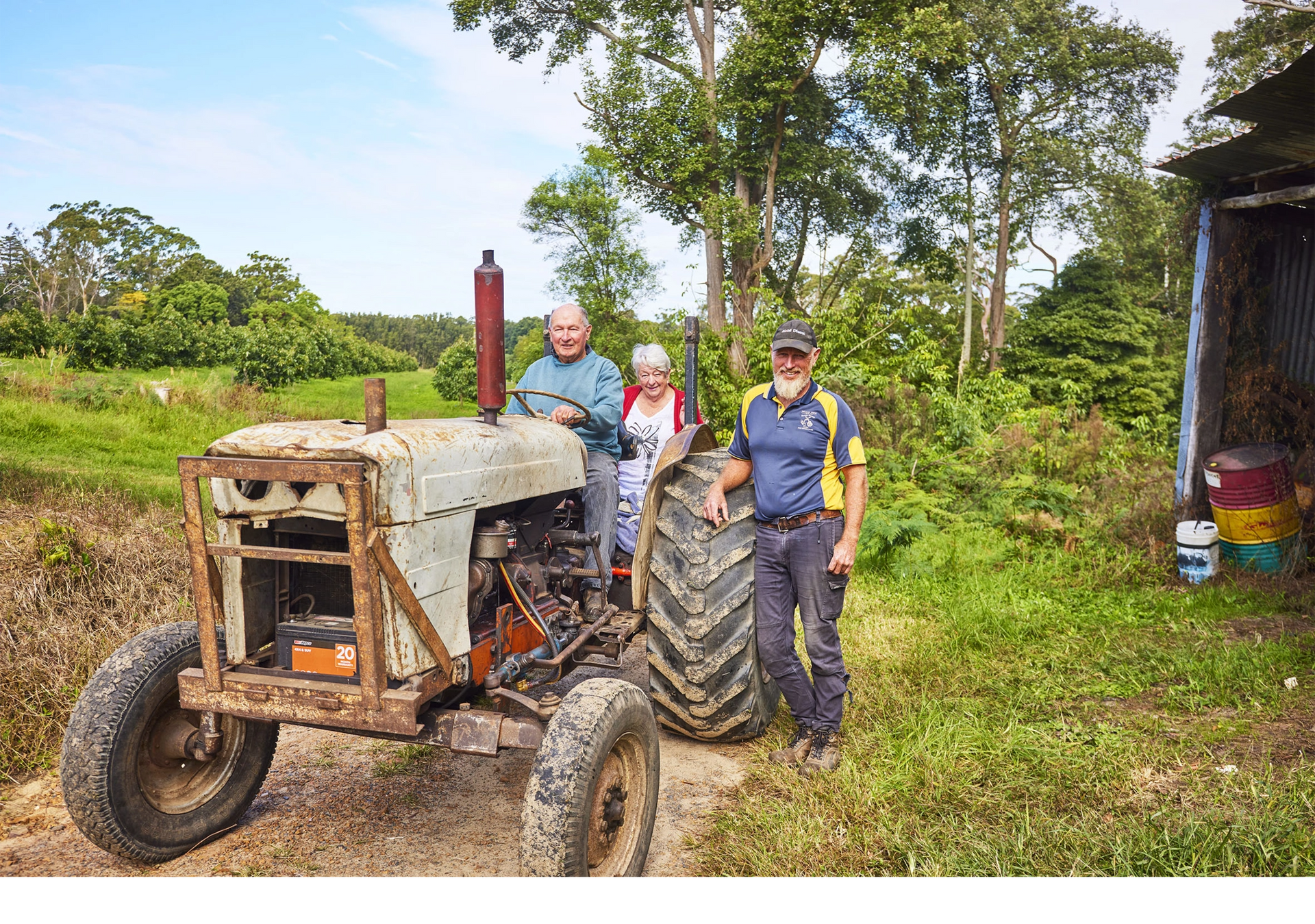
There’s something special about Peats Ridge that keeps drawing the Kemp men back. With 120 acres of verdant groves, meandering creeks and scenic views down to the Hawkesbury River, Meliora Farm is an undeniably beautiful place to grow up, yet horticulture has never been easy.
‘Citrus has always been marginal, as far as returns go,’ said Robert, whose father Ken bought the land in 1925. Robert attended Hawkesbury Agriculture College (now University of Western Sydney), then went to the Northern Territory to work on cattle stations in the late 1950’s and early 60’s.
‘I would have stayed there, but Dad wrote to me and said he’d had enough farming and wanted to sell the place. I decided I wouldn’t like to see it sold, so I came back and took over.’
Robert’s wife Lyndall recalled that they had to do all sorts of extra things in the early days to make ends meet. They had hairdressing salon, a laundromat and a fertilising business. ‘You had to,’ she explained. ‘It’s not broadacre like way out west. It’s very intensive here.’
To supplement the citrus, Robert started growing tomatoes for the Sydney market. ‘Tomatoes were much more labour intensive, but you could make money out of it,’ he said. ‘Or you could make nothing at all.’
Their son, Tim, shudders at the memory. ‘Dad cured me of tomatoes when I was a kid. The endless amount of work you had to do to get the crop ready to pick, then you pick the crop and sometimes get nothing for it, after all those hours you’d put in. I said to Dad, “If I’m going to come back to the farm, we’re not growing tomatoes!”’
Like Robert, Tim loved growing up on the farm, but he wasn’t sure he wanted to take over.
‘It’s incredible how similar our stories ended up being,’ said Tim. ‘I went to Hawkesbury as well — the 3rd generation of Kemps to go there. There was never any pressure from Dad to come back to the farm. He said “Get out and experience the world and decide what you do.”
“Growing up here, there’s definitely a deep connection that’s very hard to put into words. It’s a reciprocal thing: I feel connected to the land, but I feel the draw from the land to connect me. It’s hard to explain. It’s very emotional.”
- Tim Kemp.
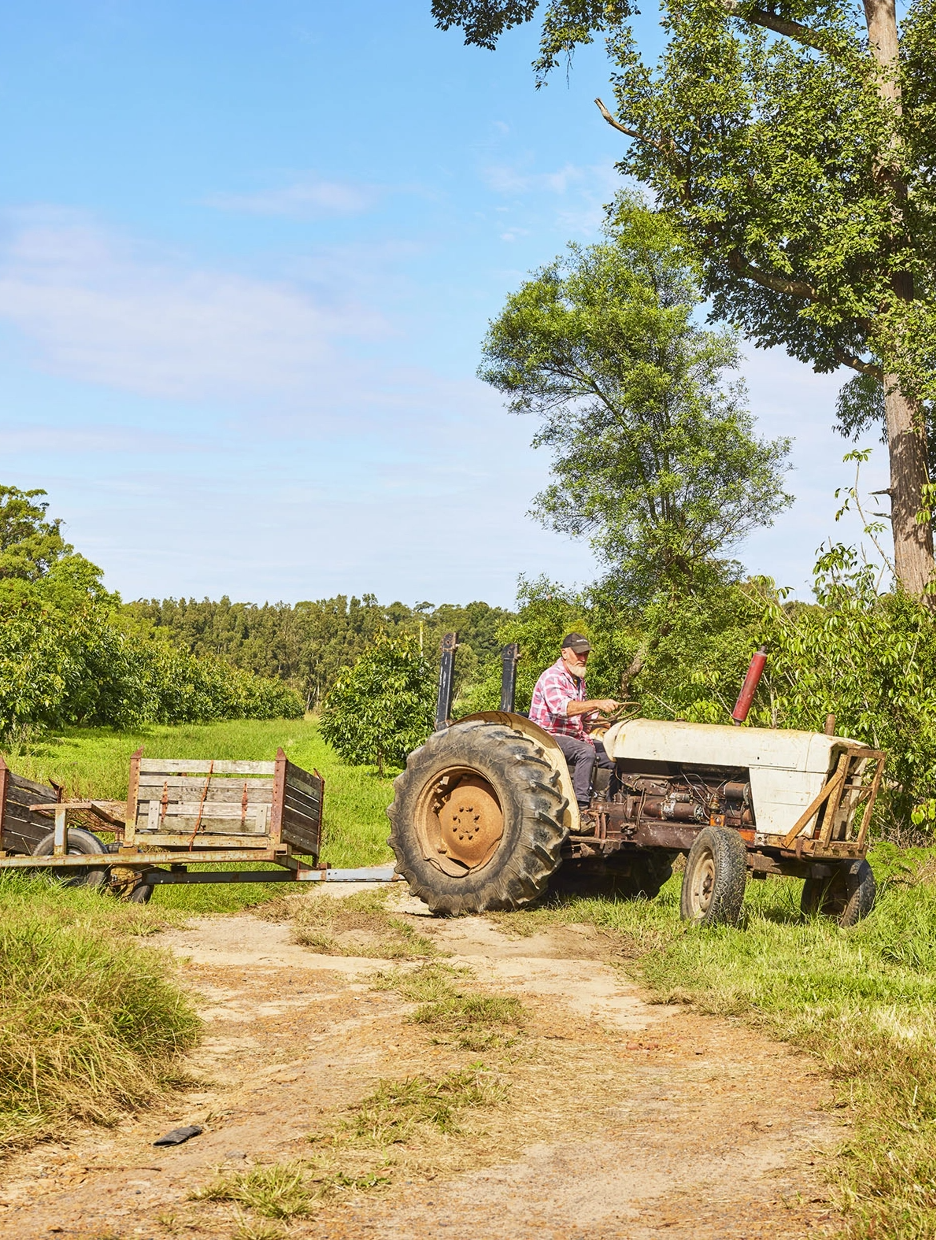
After working in Sydney, then travelling through Canada and North America for many years, Tim eventually returned to expand on Robert’s avocado venture. It was great timing. Production was good, demand for avocados continued to boom, and the switch from citrus proved highly profitable.
‘Everything has to evolve to keep up with the times,’ Tim reflected. ‘Travel widens my view of farming — I have a worldview. It helps deal with the shocks when you can see it coming.’
Recently, the shocks have been brutal. Drought and fires, followed closely by unremitting rains took a devastating toll on the trees. ‘Then Covid hit and shut the market down. It went from being quite good to really bad very quickly. The cost of inputs went up 100%, then 300%.’
Throughout these dramatic changes of fortune, the Kemps have had to evolve and innovate to stay on the land. Tim is grateful for his wife, Elise, and the knowledge she brings. ‘Elise is such an important part of the business. She has a banking background and manages all the finances. Her expertise is what’s keeping us going now.’
The lure of this landscape is something felt by more than the Kemps. Tim and Elise’s ‘Pick Your Own’ farm experiences have exploded in popularity, with groups and families coming from the Central Coast and beyond to engage directly with harvest season and enjoy the picturesque surroundings.
Their youngest, Lachlan, is the 4th generation at Meliora to show an interest in farming.
‘It’s in his blood,’ said Tim. ‘There’s no pressure, but he’s tracking along the same path as Dad and me. Study, travel, then come back to the land.’
Tractor: Robert’s father bought the tractor in 1963. ‘It’s a David Brown 990. It’s done at least 20,000 hours on the farm and still going!’
MORE STORIES
Alan Foods
Meliora Farm
Eastcoast Juice
Fibre Arts Shed
The Dennis Family
The Food Farm
Vumbaca & Sons
We acknowledge the Traditional Custodians of the land on which we live, work and play. We pay our respects to the Elders, past, present and emerging and recognise their continued connection to these lands and waterways. We acknowledge our shared responsibility to care for and protect our place and people.

